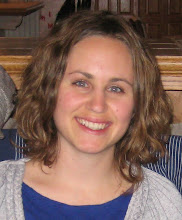Human beings have the ability to give healing to one another in ways that technology and modern medicine can never replicate. The simple act of looking at the photograph of a loved one can enable a person to endure more pain than he/she thought possible. The small touch of a mother to her infant can bring a level of comfort and security that can never be made up for later in life. Studies show that the elderly who continue to live in the neighborhoods in which they raised their families far outlive their friends who are removed to special care communities. These are just a few of the examples that demonstrate the power of human care and support for one another. Our actions toward people can reduce pain, prolong and even enhance the quality of life. That said, this special power is often overlooked or ignored in times of crisis. Instead, we focus on the complex systems and medical technology that we have built for ourselves – for our comfort and healing. All too often, though, we are left with more misery, more isolation, and more suffering because we trust science alone to heal.
It is not that technology and scientific developments are evil in and of themselves, but that in our age of realism and pragmatics, we lose sight of the other human aspects that make these advancements even stronger and more effective. This idea is beginning to gain momentum in movements such as the Mind/Body medicine movement currently being explored by doctors and medical professionals. Dr. Ron Anderson, coauthor of “Medical Apartheid – An American Perspective”, says, “I’m afraid the technology, the wonderful drugs, and the power we have now sometimes substitute for the attitude of caring.” Though the Mind/Body medicine movement is focusing more on the doctor/patient relationship, the power of touch, and caring as a way to bring unexpected healing to patients, Dr. Anderson maintains that sometimes the most effective thing he can do is depend on a patient’s community and family.
Mind/Body medicine or a “biopsychosocial and epidemiological model” are both complex ways of explaining a simple phenomenon - people need each other. Why are we waiting for science to affirm what centuries of human history have already proven? Why are we so quick to forget this truth? Ivan Illich, an Austrian philosopher, explains how different cultures instruct their participants to suffer with subprograms that include the appropriate words, drugs, myths and models. In his opinion, “Medicalization deprives any culture of the integration of its program for dealing with pain.” Due to an American tendency to focus on disease and biology, we too have a limited view of suffering that largely neglects the psychological, mental, and emotional experiences of a patient in need of care. It is possible that we inflict unnecessary suffering on others by allowing our relationships to diminish in the face of illness. We watch as our hospitals and doctors pull us away from each other, and we understand the reasoning – the need for sanitation and infection control. In the process, we have misunderstood the power of human connection and the healing that we could give to one another if we only knew how to offer it.
Subscribe to:
Post Comments (Atom)

No comments:
Post a Comment